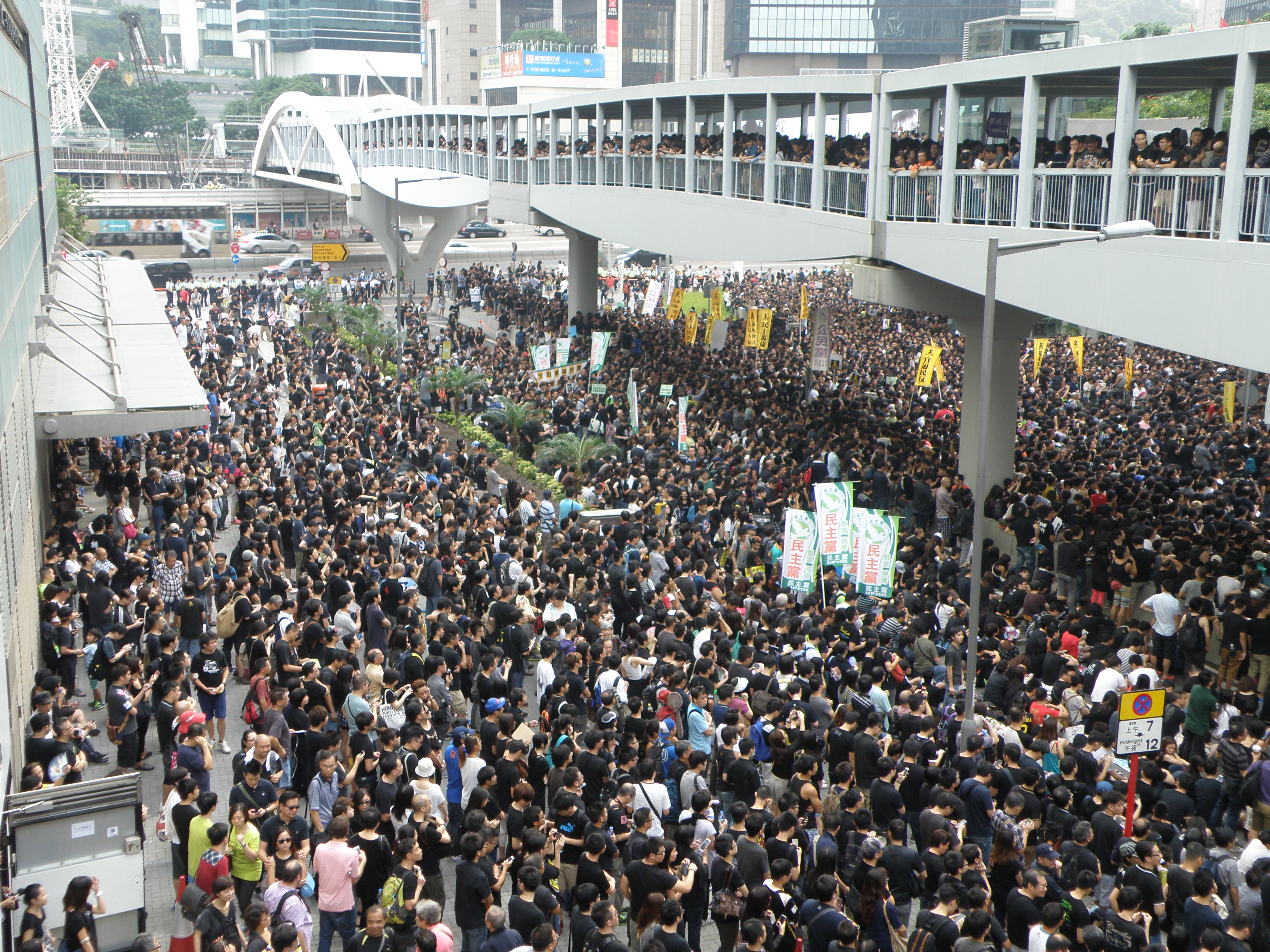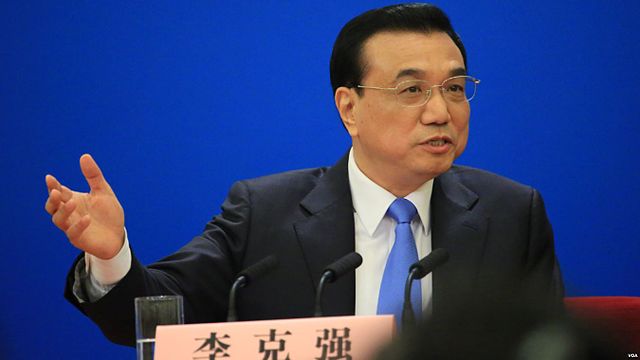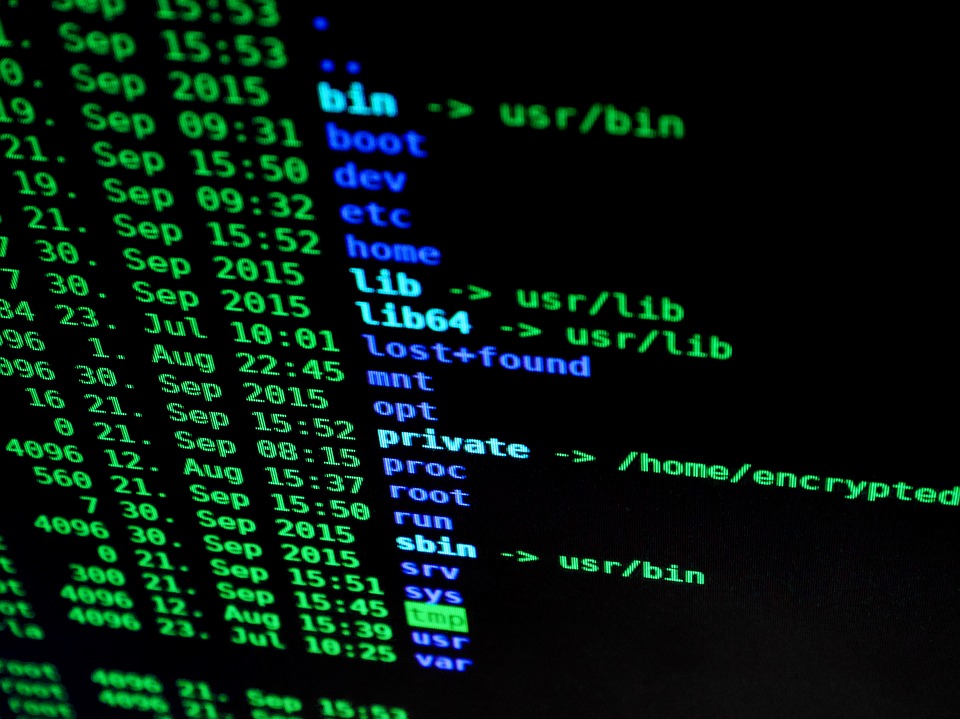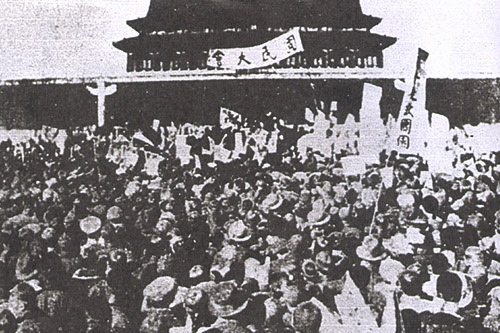
 Degree of Autonomy Decaying in Hong Kong?On May 4th, China's foreign ministry slammed the U.S. Congressional-Executive Commission on China for hosting a hearing during which a group of Hong Kong democracy activists offered assessments critical of democratic development since the territory's return to the Chinese rule in 1997. "The hearing is an overt interference in China's internal affairs," said a FM spokesman, according to Xinhua. A South China Morning Post report said that Hong Kong's last governor Chris Patten joined Hong Kong activists at the hearing in Washington D.C. on May 3, claiming the degree of autonomy in Hong Kong has decayed. The Chinese FM spokesman provided a different view. In the meantime, Hong Kong Economic Journal published a piece explaining why Senator Marco Rubio has emerged as the most vocal critic of the Chinese government's handling of Hong Kong affairs. The Economic Journal piece asserts that Rubio is expected to become increasingly vocal about China's human rights conditions and democratic progress in the days ahead; the political affairs of Hong Kong are apparently among the issues Rubio is determined to utilize in order to boost his own popularity.
Degree of Autonomy Decaying in Hong Kong?On May 4th, China's foreign ministry slammed the U.S. Congressional-Executive Commission on China for hosting a hearing during which a group of Hong Kong democracy activists offered assessments critical of democratic development since the territory's return to the Chinese rule in 1997. "The hearing is an overt interference in China's internal affairs," said a FM spokesman, according to Xinhua. A South China Morning Post report said that Hong Kong's last governor Chris Patten joined Hong Kong activists at the hearing in Washington D.C. on May 3, claiming the degree of autonomy in Hong Kong has decayed. The Chinese FM spokesman provided a different view. In the meantime, Hong Kong Economic Journal published a piece explaining why Senator Marco Rubio has emerged as the most vocal critic of the Chinese government's handling of Hong Kong affairs. The Economic Journal piece asserts that Rubio is expected to become increasingly vocal about China's human rights conditions and democratic progress in the days ahead; the political affairs of Hong Kong are apparently among the issues Rubio is determined to utilize in order to boost his own popularity. Arthur Hailey & Premier Li Keqiang's Reading ListArthur Hailey appears to be one of the favorite authors for Chinese Premier Li Keqiang as the British-Canadian novelist's work The Moneychangers (Doubelday 1975) was referenced once again at the State Council's executive meeting on May 3. The cabinet meeting in Beijing focused on inclusive financing, a United Nations' initiative to increase financing to individuals and small firms and micro-businesses. "The book tells a story of competition between two banks, one of which lost the battle due to its ignorance of small and micro businesses. If you neglect inclusive finance, you also ignore the sources of deposit and loan," Premier Li was quoted as saying. A Ph.D. in economics from Peking University, Li bought two books by Hailey – Hotel and The Evening News- during a tour in southwestern city of Chengdu last April. He also referenced Hailey in 2014 at another State Council meeting when discussing the reform of China's banking industry.
Arthur Hailey & Premier Li Keqiang's Reading ListArthur Hailey appears to be one of the favorite authors for Chinese Premier Li Keqiang as the British-Canadian novelist's work The Moneychangers (Doubelday 1975) was referenced once again at the State Council's executive meeting on May 3. The cabinet meeting in Beijing focused on inclusive financing, a United Nations' initiative to increase financing to individuals and small firms and micro-businesses. "The book tells a story of competition between two banks, one of which lost the battle due to its ignorance of small and micro businesses. If you neglect inclusive finance, you also ignore the sources of deposit and loan," Premier Li was quoted as saying. A Ph.D. in economics from Peking University, Li bought two books by Hailey – Hotel and The Evening News- during a tour in southwestern city of Chengdu last April. He also referenced Hailey in 2014 at another State Council meeting when discussing the reform of China's banking industry. Stricter Online News Rules & Facebook Office in Shanghai
Stricter Online News Rules & Facebook Office in ShanghaiChina's internet watchdog agency, the Cyberspace Administration of China, announced rules (link in Chinese) this week governing online news publication, codifying existing practices that require online news broadcasters to obtain government licenses. South China Morning Post says that it's the first major revision of regulations on online publication in 12 years while Reuters opines that it's a further step to secure the internet and maintain party control over contents. The new rules ban private and foreign companies from engaging in news production and dissemination, in a move that effectively extends current restrictions governing print news media to cover online news publishing, according to Caixin.
Meanwhile, Caixin says in a separate story that Facebook is preparing to open an office in Shanghai as it moves towards its goal of launching its core service in the world's biggest internet market. Facebook has an office in Beijing, primarily handling advertising needs, and Facebook founder Mark Zuckerberg has made overtures in courting public opinion and government support by infamously running in smog-choked Beijing and giving a speech in mandarin Chinese.
 On this day in Chinese history...in 1919
On this day in Chinese history...in 1919On May 4th, 1919, the May Fourth Movement began when over 3,000 students of Peking University and other schools gathered in front of Tiananmen Square after news from the Paris Peace Conference that the Allies intended to give Shandong Province to Japan. They shouted such slogans as, "Struggle for the sovereignty externally, get rid of the national traitors at home," "Do away with the 'Twenty-One Demands,'" and "Don't sign the Versailles Treaty." The May Fourth Movement served as an intellectual turning point in China; it was a seminal event that changed the course of intellectual thought with many now rejecting the Western-style liberal democracy that had begun to gain popularity in the country. The movement also spurred the successful reorganization of the Nationalist Party (Kuomintang) and partly stimulated the birth of the Chinese Communist Party as well.
Prepared by China-US Focus editorial teams in Hong Kong and New York, this weekly newsletter offers you snap shots of latest trends and developments emerging from China every week, while adding a dose of historical perspective.
- 2017-04-28 Aircraft Carriers, Submarines, and Jetliners: Now Made in China
- 2017-04-21 Green Cards & Red Lines
- 2017-04-14 U.S Beef for Chinese Chicken? More Hollywood Films in China?
- 2017-04-07 The Xi-Trump Summit in Florida
- 2017-03-31 Google Makes a Comeback to China?
- 2017-03-24 Xi and Tillerson Trade Phrases
- 2017-03-17 Sec. Tillerson Visits Asia ahead of Xi-Trump Summit
- 2017-03-10 Defending China's Defense Budget
- 2017-03-03 The Korean Peninsula Draws Headlines
- 2017-02-22 CPC Meets to Reaffirm Commitments in Anticipation of "Two Sessions"
